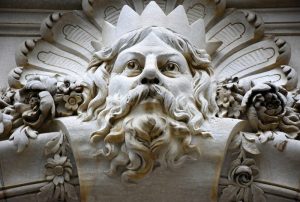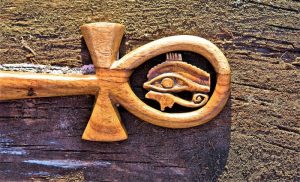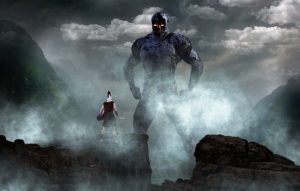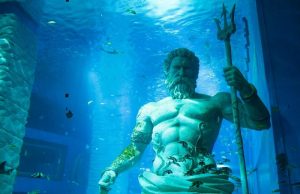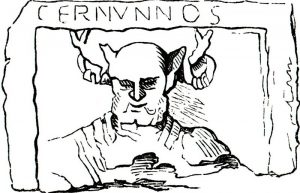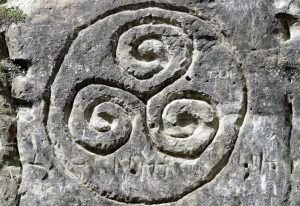Gigantomachy
The gigantomachy meant in ancient Greek "the war of the giants". This war was a fundamental episode and of great importance within the Greek mythology as a continuation to the Titanomaquia. When Zeus, the new sovereign of the Greek divinities managed to defeat his father Chronos and his allies, the titanic brothers in battle, he was also in charge of locking them in the deepest space of the underworld, that is to say, in Tartarus, in order to avoid any danger. His grandmother Gea, who was the mother of Chronos and Rhea, was very upset about it and it was then that she engendered the Giants, who started and maintained a fight against the gods of Olympus.
What is gigantomachy?
The gigantomachy was the war of the giants. It was the war that took place after the Titanomaquia, when Zeus defeated Cronus and the titans and locked them in the depths and in response, Gaia engendered the giants who fought with the gods of Olympus.
Gigantomachy in Greek mythology
After Rhea’s anger and ordering the 24 giants to attack, the Gods of Olympus remembered that in his oracle said that the Giants could not die in the hands of the gods only by the hands of a mortal, so Zeus sent for Hercules. When Gaia found out, she made a potion, so that mortals could not kill them either, but Zeus managed to destroy this potion. The giants attacked first in their land of origin, when Zeus saw that he could not kill him, he took him out of the land of the giants and there he managed to destroy him. Thus, each of the giants were killed by the arrows of Hercules full of poison from the Hydra of Lerna.
Origin of the gigantomachy
When Zeus had all the power, he shared it with his brothers, Poseidon and Hades, to whom he gave the dominion of the seas and the subterranean lands. But then, it was the giants who wanted to climb Olympus. These giants wanted to attack the dwelling of the gods and for this they placed mountains, throwing rocks and tree trunks from them to the gods, who in fear fled to Egypt. Some gods stayed to fight with Zeus, defeating many of them.
History
The Giants were terrible beings characterized by their stature and enormous strength. They were all Gaia’s sons, and had been created to defeat the gods in the gigantomachy. The first giants were the Cyclops and the Centimans, sons of Gaia, who, during the Empire of the Titans were imprisoned by their father, Uranus in Tartarus. For this reason, Gaia asked her son Chronos to fight and defeat Uranus. When Chronos killed his father, things stayed the same, as Chronos became the new dictator of the world. Much later, Zeus declared war on his father along with his brothers, and so began the First Olympic War. But Zeus, seeing that he was losing the battle, decided to go down to Tartarus to free the Cyclops and the Centimans who helped him win the war, in this way the Centimans watched that the Titans did not escape from Tartarus.
Outstanding figures of the gigantomachy
Heracles was the character who first attacked Alcyoneus and pierced him with one of his poisoned arrows. He dragged him out of his homeland, and thus managed to kill him. It is also said that he managed to kill the giant by breaking his neck with his hands thanks to the strength inherited from Zeus.
Porfirion was the one who attacked Heracles and tried to rape Hera. Zeus killed him with lightning and Heracles finished him off with his arrows.
Efialtes died for an arrow in each of his eyes, one of Apollo and another of Heracles.
Athena was in charge of crushing Enceladus when he left the battlefield. Her breath of fire comes from Etna.
Mimas was buried by Hephaestus under a mass of molten metal, in which he is supposedly still imprisoned.
Polybotes was finished by Poseidon, who supposedly threw him a piece of the island of Cos, thus creating a new island called Nisiros.
Hippolytus was defeated by Hermes, as he wore a helmet that made him invisible.
Gration was killed by Artemis’ arrows.
Gigantomachy in the Parthenon
The term Parthenon is derived from the Greek “Parthenos” and has the meaning Virgin. It referred to Athena Parthenos, goddess of wisdom and protector of the city of Athens where it is located. In it were many sacred buildings and was also used in battles. It is full of metopes, which are small fragments of mythology and the basis of a belief system of divine character. The gigantomachy is represented on the east side of the Parthenon. All these scenes that refer to it end with the victory of the youngest gods fighting along with Zeus.
How to cite this article?
Briceño V., Gabriela. (2019). Gigantomachy. Recovered on 3 January, 2025, de Euston96: https://www.euston96.com/en/gigantomachy/
